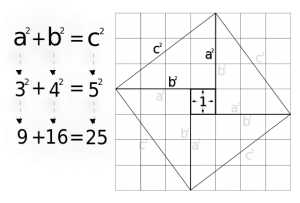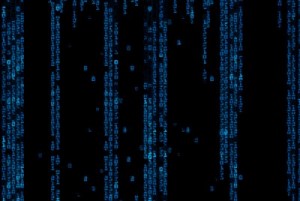If you’re a science writer chances are you’re pissed off right about now. I am. What has me and so many other writers pissed off is this: The Knight Foundation recently paid disgraced journalist Jonah Lehrer $20,000 to speak about how he lied, plagarized and basically stomped all over journalism.
His speech was a lousy apology. I mean, it’s not his fault he made so many mistakes, he’s just too smart for his own good guys. I agree that watching him talk while a public flogging took place on Twitter on a screen behind him was awkward, but are we really supposed to just look at the situation and say, welp, everyone makes mistakes? No. That time I killed the dinosaurs several million years too late because I forgot the zeroes on a date was a mistake. A mistake that came from sloppiness, that I apologized for, and learned from. I was forgiven for that mistake (which was even in an article I wasn’t paid to write.) Fabricating quotes, plagarizing, and lying in multiple publications, for a prolongued period of time, that isn’t an, “everyone makes mistakes” scenario. That is a, you have fundamental character flaws that should prohibit you from doing this job, scenario.
A lot of the science writers I know, young, new, established – it doesn’t matter – were and still are up in arms about the Knight Foundation paying Lehrer $20,000 for his “apology” speech. I’m mad too, I’m mad for every single good journalist out there staring at their bank account wondering if they’ll be able to pay this month’s rent. I’m mad because $20,000 could fund a lot of amazing journalism and the Knight Foundation paid it pretty much just to get people riled up and talking about the Knight Foundation. I’m mad because good journalists are giving up because they can’t make enough money to stay alive in this business. Giving up. But we’re going to keep Lehrer’s career alive. That’s insane.
I have a full time salaried science writing job – it makes me feel lucky on a daily basis that I’m getting paid to do something that I enjoy. Still, as a science writer for a cancer center I’ve been told that I’m a sell-out. I’ve been told that I can’t consider myself a journalist anymore because my objectivity and integrity is tainted by being associated with an organization. Any organization. It doesn’t matter if it happens to be a decent, hell even a good, organization. I took a job in science communication rather than chasing a career in pure journalism because it makes me happy. While in graduate school I started having serious doubts about whether my personality was cut out for journalism. I took a long hard look at what I loved about science writing and decided that the act of communicating, of explaining, of seeing the impact of helping people understand was most important to me. It wasn’t a decision made based on money, but obviously the fact that I could get a paying job doing communication when there are no guarantees in journalism made the decision easier. The decision I made still gets to me sometimes though. It REALLY gets to me when I think about the fact that people contend I can’t consider myself a journalist anymore, but Lehrer can. Lehrer gets to be a journalist. Really?
Where do we even start to try to address the problem here? Can we ever even hope to convince the people who have the money to pay up for writers that are actually worth $20,000 (and really so much more?) I don’t know. But, I think the science writing community did a great thing by reacting to the whole $20,000 debacle by tweeting the names and articles of good writers using the hashtag #worth20k. The suggestion came from @vero_greenwood and was Tweeted by Ed Yong – who is worth far more than $20,000 himself – and ended up creating a list of pretty fantastic writers who deserve a lot more financial support for their work than they’re getting.
I wanted to add my two cents, but twitter is a medium for brevity and I feel like I need to explain WHY the fact that the following people exist means the science communciation ecosystem doesn’t need someone who lies, plagarizes, and then tries to tell us it’s just because he’s so smart. And arrogant. Can’t forget the arrogance. I could never list everyone whose work is worth20k, so this just a few people who inspire me, or have had an impact on my career in some way. I hope you’ll check out the hashtag itself for more, and as Bora Zivkovic said on twitter the whole SA Incubator is a list of people who are worth20k, so editors – help a new science writer out!
#worth20k (and so much more)
Jennifer Ouellette – I’ve been pretty open about the fact that I’ve never taken a physics class, barely scraped my way through high school chemistry with a D, and never took a math class higher than Algebra III (which I and everyone else in my high school knew was math for the dumb kids.) I’ve pretty much always wanted to write about science, but there was a moment in there when I wanted to be a scientist, (straight A’s in biology might have had something to do with it) – but I decided against science itself because I didn’t think I’d ever be smart enough to pass the classes. When I was just starting graduate school for Journalism focused on science writing I was really intimidated by writing about things I’d never studied. Enter Jennifer Ouellette. She came to UW-Madison as the science writer in residence and talked to us about how she taught herself physics. She blogs at Cocktail Party Physics and has written several books on physics and calculus. Whenever I start feeling like I’m in over my head and I’m just not going to get something right, I think about that talk. I dive back into the paper, or look up the answers and I figure it out. I remember that I can do this. I remember that I’m smart enough. TELL ME THAT’S NOT WORTH $20,000.
Steve Silberman – Last year UW-Madison hosted a conference on Science Denial. I was just sitting pre-session drinking my coffee when Steve Silberman sat down next to me. As we started up a conversation in my head I really couldn’t help thinking, “this is the most unassuming guy ever” because he clearly had no idea that I’d been trying to think of something inteligent to say to start up a conversation with him since the conference started. I’ve admired his writing for a while now, I always enjoy his PLoS blog and am so looking forward to his book! He always impresses me with the bravery and honesty in his writing. He tackles issues that might make people uncomfortable or be controversial and he does so with grace and eloquence. Worth $20,000.
Maggie Koerth-Baker – Maggie is someone I only recently got to meet (cheers, scio13) but whose work I’ve admired since I came across this fantastic explainer she wrote following the Fukushima nuclear incident. Nuclear Energy 101: Inside the “black box” of power plants is an awesome example of how to explain something that can be really complicated so that people take away the key information they need. I write a lot of explainers in my job, and I come back to this piece often as an example of how to get things right. Worth $20,000.
Rose Eveleth – The fact that since Science Online I have had people say to me, “wait, so you actually KNOW Rose?” totally just shows how amazing and admired Rose Eveleth is in the science writing community. She is a thoughful and creative science journalist who is busting her ass to make the science communication ecosystem better. You know what I would like you to do? I would like you go put her Kickstarter for Science Studio, a project with Ben Lillie and Bora Zivkovic, over the $8,000 goal so that they can sort through the best science audio AND video for us. Please. Only needs $8,000 but is SO WORTH $20,000.
Ivan Oransky – The man behind Retraction Watch and Embargo Watch, Ivan inspires me as a science writer because he saw a need in science communication and he did something about it. He started the blogs, and they’ve become a great resource and forum for talking about serious issues in science and communication. He made something, that we needed and benefit from – and he just does it so well. Be inspired. Create new, awesome things. Worth $20,000.
The rest of #sci4hels – Bora Zivkovic, Lena Groeger, and Kathleen Raven – All of you, and of course Rose, leave me pretty much feeling honored that I get to be associated with you. Whenever I talk about our panel at the World Conference of Science Journalists and people ask me “so why are you going?” I always reply with “I have no idea” because I really don’t feel worthy compared to all of you. I admire all of you so much, I did before all this #sci4hels killer science journalists of the future business, and I know I’ll continue to admire you after. Bora – our brave leader and the blogfather, not afraid to say what needs to get said, a never ending source of support and one hell of a writer. Check out his post on commenting threads, just the latest in a long line of awesome, thoughtful posts. Lena – her work at Propublica consistently impresses me, check out the awesome data visualizations used to track oil and natural gas pipeline accidents. I always love reading Kathleen’s articles, just one example is David Blaine’s Electrical Stunt Could Create Harmful Ozone. You are each worth $20,000 and then some.














